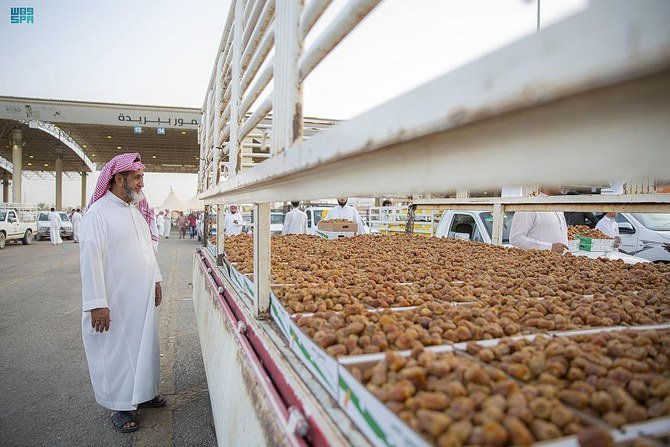By Riad Beladi
Saudi Arabia is known for its rich culinary heritage and traditional food products. In recent years, there has been an increased focus on food export as part of the country’s efforts to diversify its economy. Here are some key aspects of Saudi food export:
- Dates: Saudi Arabia is one of the largest producers and exporters of dates in the world. Dates are a significant part of Saudi Arabian culture and cuisine, and they are exported to various countries, particularly during Ramadan.
- Dairy Products: Saudi Arabia has a thriving dairy industry, producing milk, cheese, butter, and other dairy products. Some Saudi dairy companies have started exporting their products to neighboring countries and beyond.
- Red Meat: Saudi Arabia has been investing in the development of its livestock sector to increase domestic production and reduce dependence on imports. As a result, there has been an increase in the export of red meat, including lamb and beef, to neighboring countries in the Gulf region.
- Processed and Packaged Foods: Saudi Arabia has seen a growth in the export of processed and packaged food products. These include canned fruits and vegetables, frozen foods, snacks, sauces, and spices.
- Beverages: Saudi Arabia has a growing beverage industry, including bottled water, juices, and soft drinks. Some Saudi beverage companies have started exporting their products to other countries in the region.
- Seafood: Saudi Arabia has a long coastline and a rich fishing industry. The country exports various seafood products such as fish, shrimp, and crab to different international markets.
- Organic and Specialty Foods: There is an increasing demand for organic and specialty food products worldwide, and Saudi Arabia is starting to tap into this market. The country has been investing in organic farming and the production of specialty foods such as honey, olive oil, and traditional spices.
- Halal Food Products: As a predominantly Muslim country, Saudi Arabia is known for its expertise in producing halal food products. Halal certification and compliance are important for Saudi food exports, especially to countries with significant Muslim populations.
Saudi Arabia’s food export industry is still in its early stages of development, and there is potential for growth in various sectors. The government has been implementing initiatives to support and promote food export, including facilitating trade agreements, providing incentives, and enhancing food safety standards.
It’s important to note that specific regulations, certifications, and market requirements may vary depending on the destination country for Saudi food exports. Companies looking to export food products from Saudi Arabia should familiarize themselves with the regulations of their target markets and ensure compliance with international standards.



